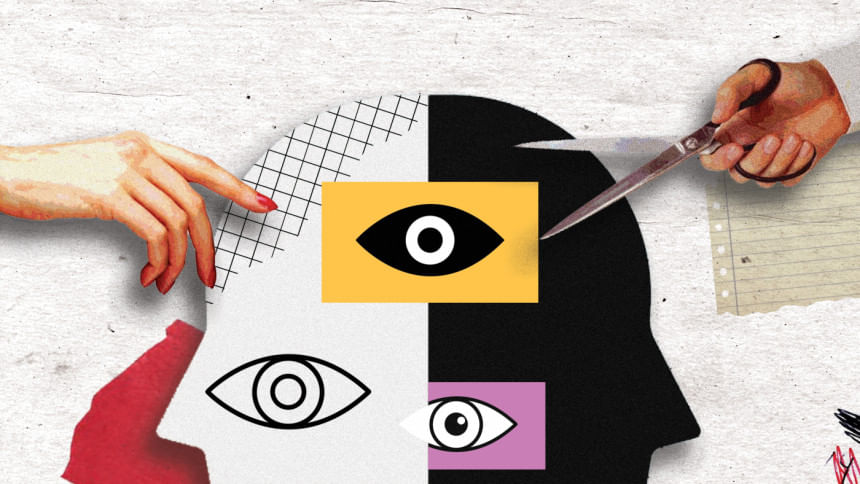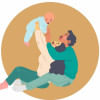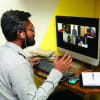Our lives and the secrets we keep

Growing up, the idea of parents being your closest relatives was completely alien to me. For me, parents were supposed to be authoritarian figures who control every aspect of your life and forbid you from doing things you enjoy. Be it something as silly as watching cartoons in the afternoon rather than taking a nap as a kid or staying out with friends after dark when you're older, my parents always made the call. So, when I'd see my friends being able to do things I was told not to, I decided to do something that would let me live my life the way I want to.
I decided to hide.
Soon, I was living two lives – one at home and one outside. I always made sure the two lives never coincided. Initially, I felt ashamed to admit to my friends that my parents weren't as lenient as theirs. But as I grew up and became more comfortable with my insecurities, I started talking to other people and realised that more people from my generation live similar dual lives.
"From my experience, I feel like parents see their children as an extension of their own existence rather than identifying them as individuals," said Abid Hasan*, an undergraduate student at Bangladesh University of Engineering Technology (BUET).
"This isn't visibly a problem when the child is young but when the child grows to create a personality of their own, conflict kicks off. They become afraid to lose control and try to suppress the conflict by trying to squash the booming individuality in the child. So, naturally, the child is left with three options – give in and become devoid of any individuality, become such a resistive force that eventually burns them from the inside, or, in my case, transform into a dual personality character with one side painting the ideal child while the other side tries to maintain the original human within the shell."
The urge to hide things from one's parents begins when kids can no longer suppress their individuality and want to start making choices of their own. Since rebellion is often not an option, kids with overprotective parents have to start finding other ways to express their individuality.
Fateen Navid, an undergraduate student at Islamic University of Technology (IUT), said, "Sometimes I don't get permission for doing what I want. There's a certain limit up to which I'm permitted to do things and so when I want to cross that limit, I have no other way but to lie at home."
But soon, the duality affects an individual psychologically. The constant stress of having to maintain dual personalities and acting a certain way in front of different groups of people finally gets to their head. Anger riles up, stress takes over one's mental health, and the person has to learn to live with these emotions without having anyone to share them with.
"There have been multiple times where I've been called out and poked by my friends for not being able to stay out with them for longer periods owing to my restrictions at home," said Fateen. "I can't share this frustration with my friends. I have to maintain this duality and hide things perfectly because otherwise I'll get bullied for my situation at home. So, I have to handle things in my own way rather than crying about it."
"If I get injured from a football game, my first concern isn't pain. It's how my mother's going to react, how I'm going to console her or worse – whether she's going to stop me from playing in the future," said Abid.

"The only thing I regret is that I have to do it over and over again," continued Fateen, "My parents don't really allow me to go out regularly so I have to make my opportunities count. The process of asking them for permission or making excuses drains me psychologically. I have to contemplate how they're going to react or how I'm going to convince them. So, once I go out, I usually have to take some time off and be in a buffer zone to let the stress go. If someone asks me to go out within that period, it stresses me out because I don't want to have to go through the same psychological stress over and over again. The paranoia plagues me a lot."
Gradually, the child gets emotionally isolated from the parent and the communication channel completely breaks over time. A person might be chronically depressed without their parents in the next room having any idea about it because hiding one's true self from their parents is all they've ever learnt. Lying and hiding things becomes a habit even after their parents become more lenient with time.
"I barely share my emotions with them because often, they're the reason I mentally suffer," said Rezwana Saima, an undergraduate student at Dhaka University, "Even if I share my emotions with my parents, I think they'll judge me from their own perspectives and so, I just decide not to share anything at all."
"My mother became more flexible with time," said Saima. "Back in school, if I wanted to go out for lunch with my friends after classes, she wouldn't let me. That's when I gradually started lying. But now that I'm in university, my mother would let me off easy if I want to go out for lunch. Yet, I lie the same way I used to because it's become a habit now. It's too late for me to accept her leniency and re-establish the communication channel."
With time, it becomes difficult to suppress one's true self, turn a blind eye to one's parents' more conservative mindset, and continue to remain quiet. Living a life of constant contradictions, secrets and dualities slowly push a person towards the edge.
"Our moral codes regarding sexism, racism, bigotry etc. drifted radically over the years," Abid talked about his relationship with his parents. "At this point, we simply pretend that these parts of our personalities don't exist. Recently, after one of my parents crossed a particular line, I've essentially cut off from them emotionally."
Following the recent developments, Abid had to take psychiatric medications for panic and anxiety, "I'm a categorical people pleaser and I have a constant self-hatred that is quite agonising to swallow. I've grown this habit of carefully skipping certain information, hiding realities, and becoming an expert mental gymnast to justify myself to my own moral codes by using vagueness instead of direct dishonesty. This is mentally draining me because I'm not being able to stand for what I principally believe in. I'm tired of lying to myself and not being able to stand up for my own morals."
Constant habitation with a dual personality has long-lasting impacts on a person's mental health, since hiding things daily requires constant awareness and effort which exhausts oneself psychologically. Because kids themselves are the victims of the authoritarian behaviour of their parents, it is difficult for them to try to re-establish the communication channel on their own. The parents should be the ones to try to create a safe space in the household where a child can share their emotions without having to fear judgemental behaviour or negative reactions.

Sharmin Haque, a clinical psychologist at Square Hospital, talks about the reason behind a child keeping secrets from their parents, "In Bangladesh, there's no culture of counselling parents before they have a child. So, parents often don't understand the right method of approaching their child or the boundaries of their assertion of dominance or control. A generational gap is obvious between the parents and their children. But even with the generational gap, it's possible to negotiate with children and make them aware of their boundaries without asserting dominance. For example, during a child's puberty, if the parents discuss issues freely with the child then in the future, the child will consider the parent to be a reliable person and share personal problems with them. But if the parent just says 'no' without explaining the reason behind the disapproval, the child won't be comfortable sharing their opinion anymore."
Sharmin Haque believes that parents need to stop analysing their children's situations based on their own experience, "Kids these days are much more intellectually developed than parents were at the same age due to the changes in our society, among other aspects. Parents need to acknowledge these changes and stop judging their children based on parameters built upon their previous experiences."
Having to keep secrets from your loved ones, constantly faking a smile and burying emotions deep inside our hearts – these are things that no child should have to go through. If someone doesn't feel safe in their own home and secure in front of their own parents, do they really have anywhere to go?
*Names have been changed upon request
Remind Ifti to be quieter at [email protected]

 For all latest news, follow The Daily Star's Google News channel.
For all latest news, follow The Daily Star's Google News channel. 











Comments